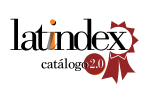REPRODUCCION SOCIAL Y SU INFLUENCIA SOBRE EL PERFIL DE SALUD - ENFERMEDAD DE LOS PROFESORES DEL AREA DE SALUD DE LA UNIVERSIDAD DE CUENCA. 2014 - 2016.
Abstract
RESUMEN
OBJETIVO: Determinar la influencia de la reproducción social sobre el perfil de salud -enfermedad de los profesores del área de la salud de la Universidad de Cuenca”. 2014 - 2016.
METODOLOGÍA: Investigación cuali – cuantitativa, tipo de estudio descriptivo transversal - correlacional, con muestra aleatoria simple de 101 docentes. Las técnicas utilizadas: observación, encuesta, valoración psicológica mediante test de Epiestres y de Goldberg. El procesamiento y análisis de información se realizó en SPS, EPIINFO, estadística descriptiva e inferencial y odds ratio para calcular asociación en variables cuantitativas.
RESULTADOS: Los docentes según las encuestas cumplen jornadas de trabajo mayores a 40 horas semanales, (p: 0.004), con los que están expuestos a procesos peligrosos químicos, radioactivos, psicológicos, (p: 0.006), mal ambiente de trabajo 56.43% (p: 0.033); consumo simple (65.34%), a consumo ampliado 34,65% (p: 0.351), perfil de salud caracterizado por: estrés 55.45% y depresión moderada 43.56%, problemas respiratorios 51.49, digestivos 53.47%, musculo – esqueléticos 73.27% y síndrome de ojo seco 69.3%.
CONCLUSIONES: El estudio muestra la influencia de la reproducción social sobre el Perfil de salud–enfermedad, prevaleciendo el acceso al consumo simple, las diferencias de género para enfermedad laboral, existiendo asociación estadística y teórica, confirmándose la hipótesis.
PALABRAS CLAVE: materialismo dialectico, reproducción social, perfil salud-enfermedad, complejidad, procesos protectores y peligrosos.
ABSTRACT
OBJECTIVE: To determine the influence of social reproduction on the health-disease profile of health professors of the University of Cuenca. 2014 - 2016.
METHODOLOGY: It is a quali-quantitative research, with a cross - correlation descriptive study, and a simple random sample of 101 teachers. The techniques used were: observation, survey, psychological assessment by Epiestres test and Goldberg. The process and analysis information was performed in SPS, EPIINFO, descriptive and inferential statistics and odds ratio to calculate association in quantitative variables.
RESULTS: The teachers according to the surveys, work more than 40 hours a week, (p: 0.004), they are exposed to dangerous chemical, radioactive, psychological processes, (p: 0.006), poor working environment 56.43% P 0.033); simple consumption (65.34%), increased consumption 34.65% (p: 0.351), health profile characterized by: stress 55.45% and moderate depression 43.56%, respiratory problems 51.49, digestive 53.47%, musculoskeletal 73.27% and dry eye syndrome 69.3%.
CONCLUSIONS: The study shows the influence of social reproduction on the health-disease profile, with the prevalence of access to simple consumption, gender differences for occupational disease, and statistical and theoretical association, confirming the hypothesis.
KEYWORDS: dialectical materialism, social reproduction, health process- Disease, complexity, protective processes and dangerous.
Downloads
Downloads
Published
Issue
Section
License
Copyright © Autors.

You are free to:
 |
Share — copy and redistribute the material in any medium or format |
 |
Adapt — remix, transform, and build upon the material for any purpose, even commercially. |
Under the following conditions:
 |
Attribution — You must give appropriate credit, provide a link to the licence, and indicate if changes were made. You may do so in any reasonable manner, but not in any way that suggests the licenser endorses you or your use. |
| NonCommercial — You may not use the material for commercial purposes. | |
| ShareAlike — If you remix, transform, or build upon the material, you must distribute your contributions under the same license as the original. |
| No additional restrictions — You may not apply legal terms or technological measures that legally restrict others from doing anything the licence permits. |






